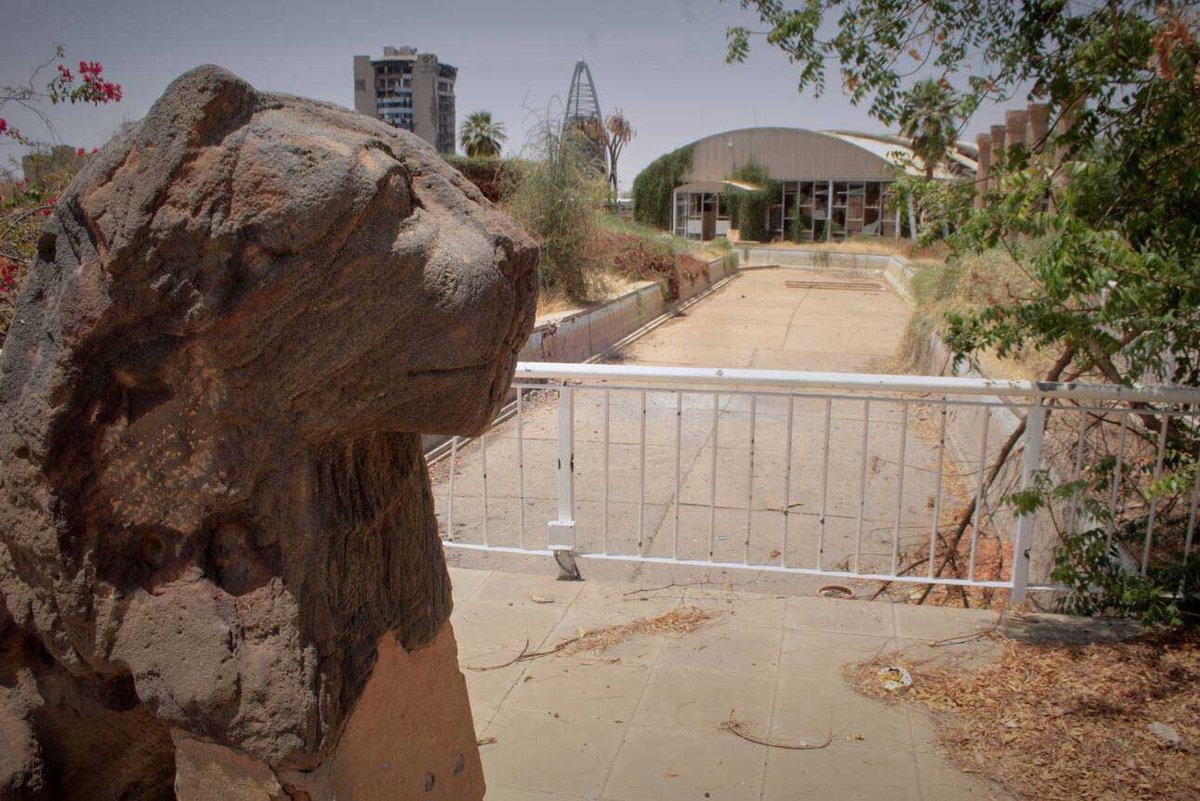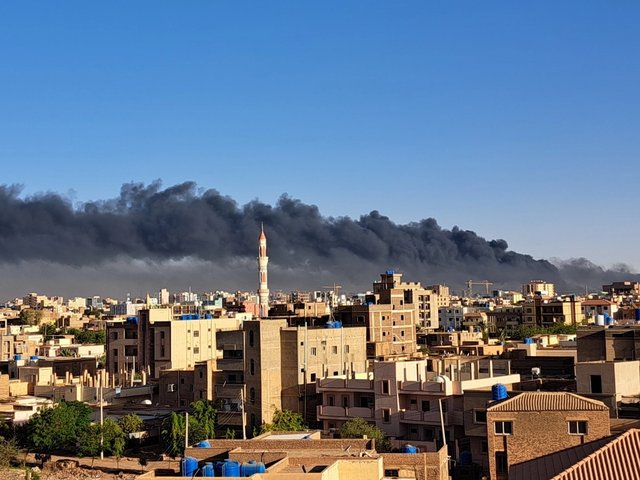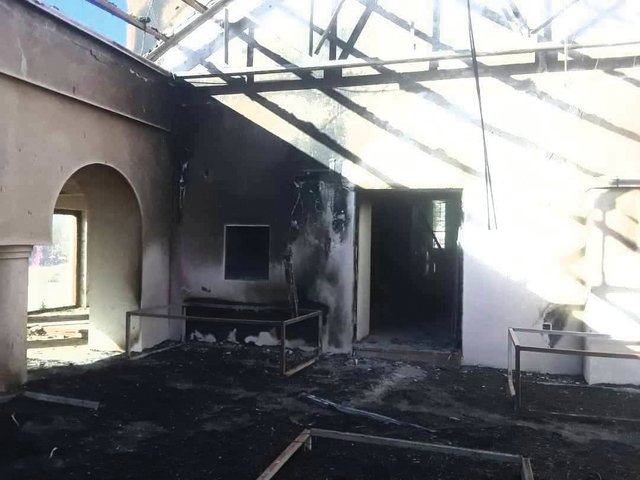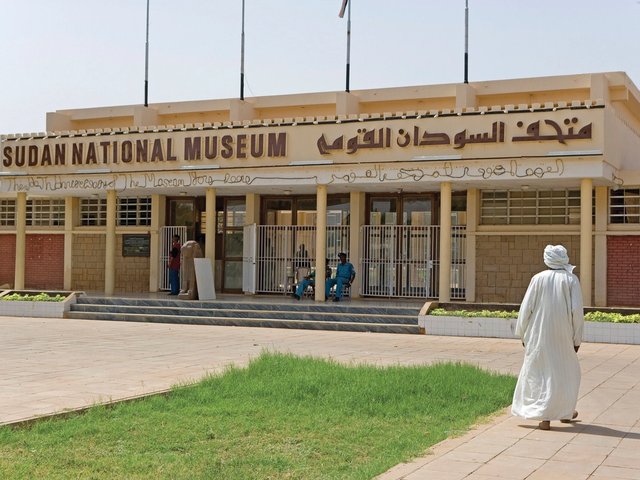Sudan’s brutal civil war—driven by a power struggle between the Sudanese Armed Forces (SAF) and the paramilitary Rapid Support Forces (RSF)—has devastated the country for the past two years. UN and human rights organisations report war crimes, including mass rapes and ethnically motivated killings. Tens of thousands have been killed and nearly 13 million people have been displaced.
Cultural institutions have not been spared. Many of the country’s foremost museums have been looted or destroyed, while archaeological sites are deteriorating because of lack of funding and insufficient international support. Despite the extreme hardships and limited domestic and international assistance, many cultural figures—often displaced themselves—are continuing their work to safeguard Sudan’s heritage.
We spoke to three art and heritage workers on the ground in Sudan about their experiences.
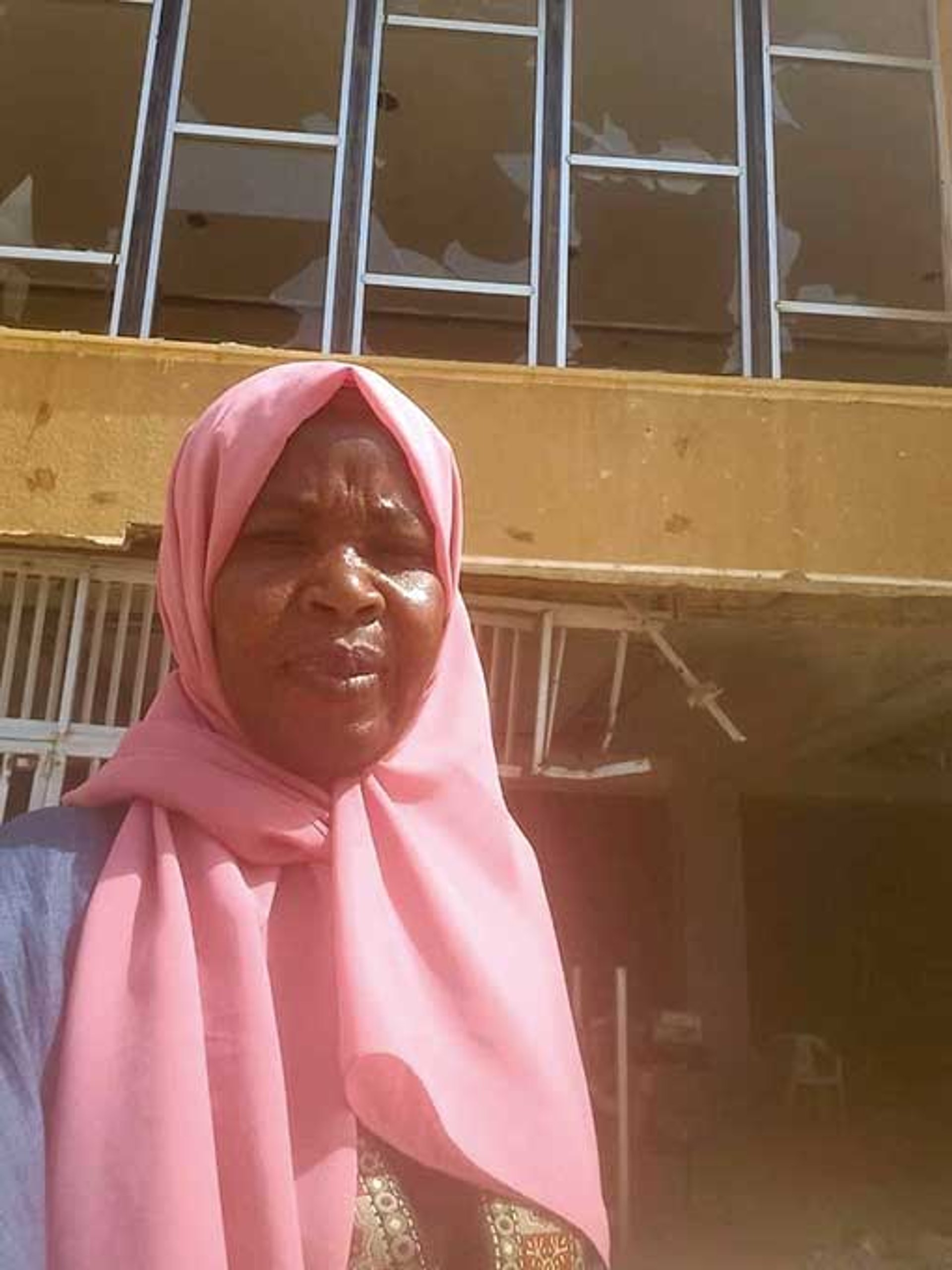
Courtesy Omayama Abdel Rahman Mohammed Al-Sanosi
Omayama Abdel Rahman Mohammed Al-Sanosi
Omayama Abdel Rahman Mohammed Al-Sanosi has spent much of her career safeguarding Sudan’s cultural heritage. In 2023 when war erupted, she had been working for over a decade at Sudan’s National Museum in Khartoum and was part of its curatorial team. Her life then fell into disarray.
As the RSF presence increased in her neighbourhood in Khartoum North and the area became increasingly dangerous, she and her family relocated to the River Nile State. There, fearing the museum in Damer might be attacked, Al-Sanosi and her colleagues packed up the museum’s collection and moved it to safety.
I cried all day. This was our culture; this was for all humanity
But daily life remains a struggle. While she still receives a “small salary”, it barely covers basic needs amid soaring prices. Medication is scarce and costly. Al-Sanosi, who underwent open-heart surgery several years ago, depends on medicines that are becoming increasingly hard to find. She also worries about her 11-year-old son’s future in the war-torn country.
Her home in Khartoum North, which is now under army control, was looted. “Even the cupboards were taken,” she says. She hopes to return after her son’s exams and start rebuilding her life.
The looting of the National Museum hit her hardest. When photos and videos of the ransacked collection surfaced in March 2025, she was devastated. “I cried all day. I stayed in a room for two days, I couldn’t speak to anyone,” she says. “This was our culture; this was for all humanity.” The museum housed one of the most significant archaeological collections in northern Africa, with artefacts spanning the Stone Age to the Islamic kingdoms, including pieces from the Funj Sultanate of Sennar that ruled Nilotic Sudan from the 16th century to the 19th. Al-Sanosi and her colleagues visited the National Museum in May as part of ongoing efforts to assess the extent of the damage. She says, “I couldn’t describe my feelings when I saw the museum like that—the entire building was destroyed.”
After two years of conflict and no sign of the crisis ending, Al-Sanosi says if she were given the chance to leave Sudan, she would not hesitate to do so.
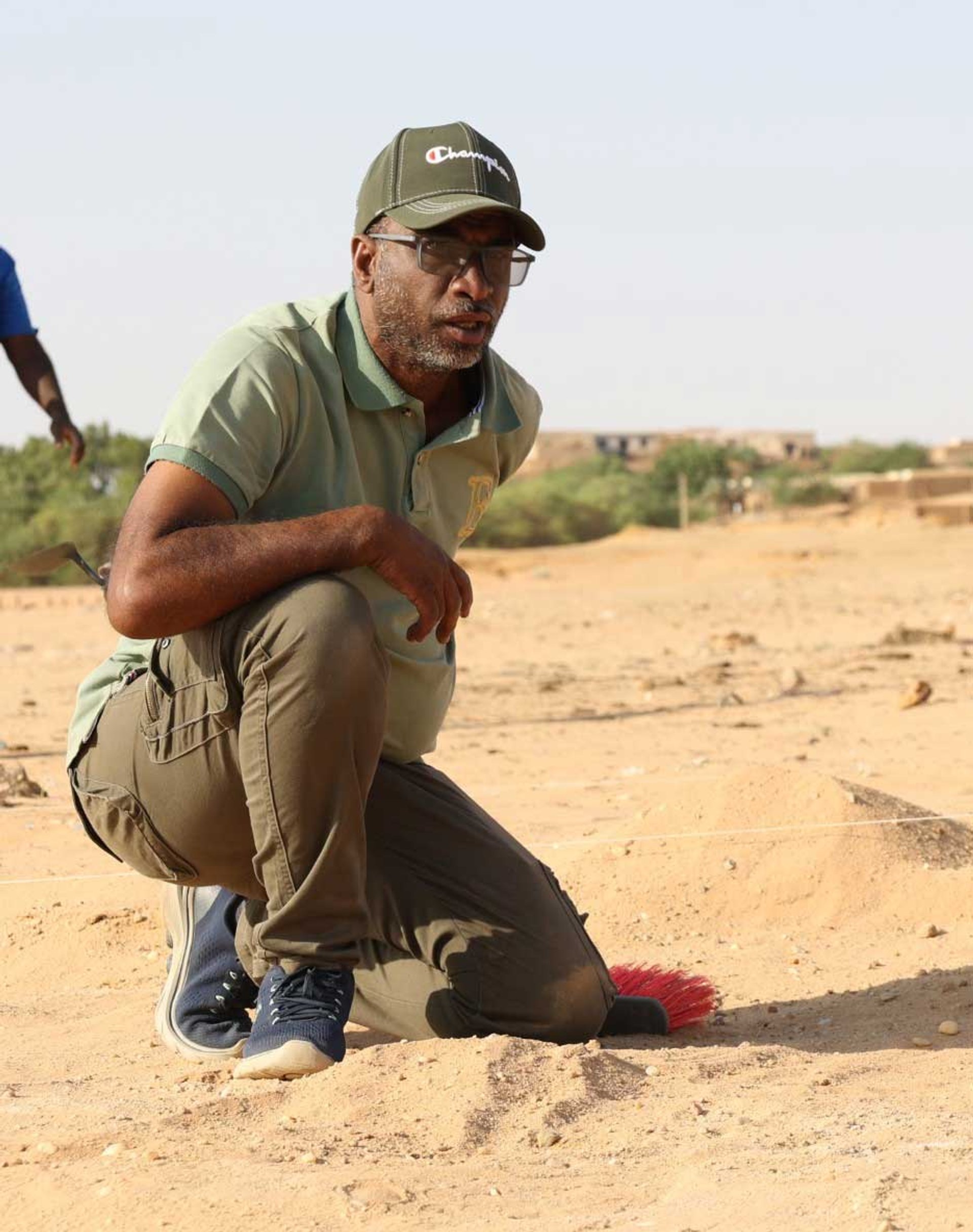
Photo: Jebel Barkal Archaeological Project
Sami Elamin
Sami Elamin, the director of Sudan’s Northern State Antiquities Office and the site manager for the Jebel Barkal Unesco World Heritage Site, was preparing to return to his post in Karima, 400km north of Khartoum, when civil war erupted in April 2023.
As the RSF seized the capital, the city was bombed, and access to essentials such as money, electricity and communication was cut off. Elamin lost contact with his elderly, ill parents for two weeks. He then navigated RSF checkpoints across the city to bring them to his home. “I was quite lucky to reach them alive,” he tells The Art Newspaper.
With the violence escalating, he evacuated his family to Karima by minibus—a journey he describes as “very scary”. They only felt safe three hours later, in the desert. “Can you imagine that? You can be safe in the desert, not in the city,” he says.
His parents, like many other Sudanese, travelled to Egypt for medical care. Other relatives have also fled Sudan, seeking education for their children as the quality of schooling in the country plummeted—some classes have 80 pupils and operate on a rotating shift basis to accommodate the influx of displaced families.
Despite the difficult circumstances, Elamin chose to stay behind. “I can’t just leave. There should be someone here to keep things in order, to solve problems,” he says. “I’m not saying I solve everything, but with my staff and colleagues, we’ve managed to keep things stable at Jebel Barkal.”
In the absence of government support, Elamin and his colleagues on the site have relied on a longstanding partnership with the University of Michigan in the US, and its Jebel Barkal archaeological project. The site, part of a vast area stretching 60km that includes temples, pyramids, tombs and palaces from the Napatan (900-270BC) and Meroitic (270BC-AD350) periods, suffers from environmental impacts such as flooding and an influx of displaced people. “Most of the problems existed even before the war, but they have become more and more dangerous for the site after the war,” Elamin explains.
With support from the university and other organisations, Elamin has introduced basic protective measures such as hiring guards, installing bollards and removing waste. But in March 2025, another setback came when the US President Donald Trump’s administration foreign aid cuts terminated a crucial grant from the US Ambassadors Fund for Cultural Preservation, which was distributed through the university. What remained, around $100,000, would have sustained Elamin’s team for another year.
Meanwhile, the chaos of war has emboldened opportunists. For example, construction work in the Unesco site’s buffer zone has been approved by local authorities. Elamin has intervened, filing police reports, and managed to halt it. He is undeterred by the prospect of a possible jail sentence. “I’m not scared,” he says. “I’ll find my way.”
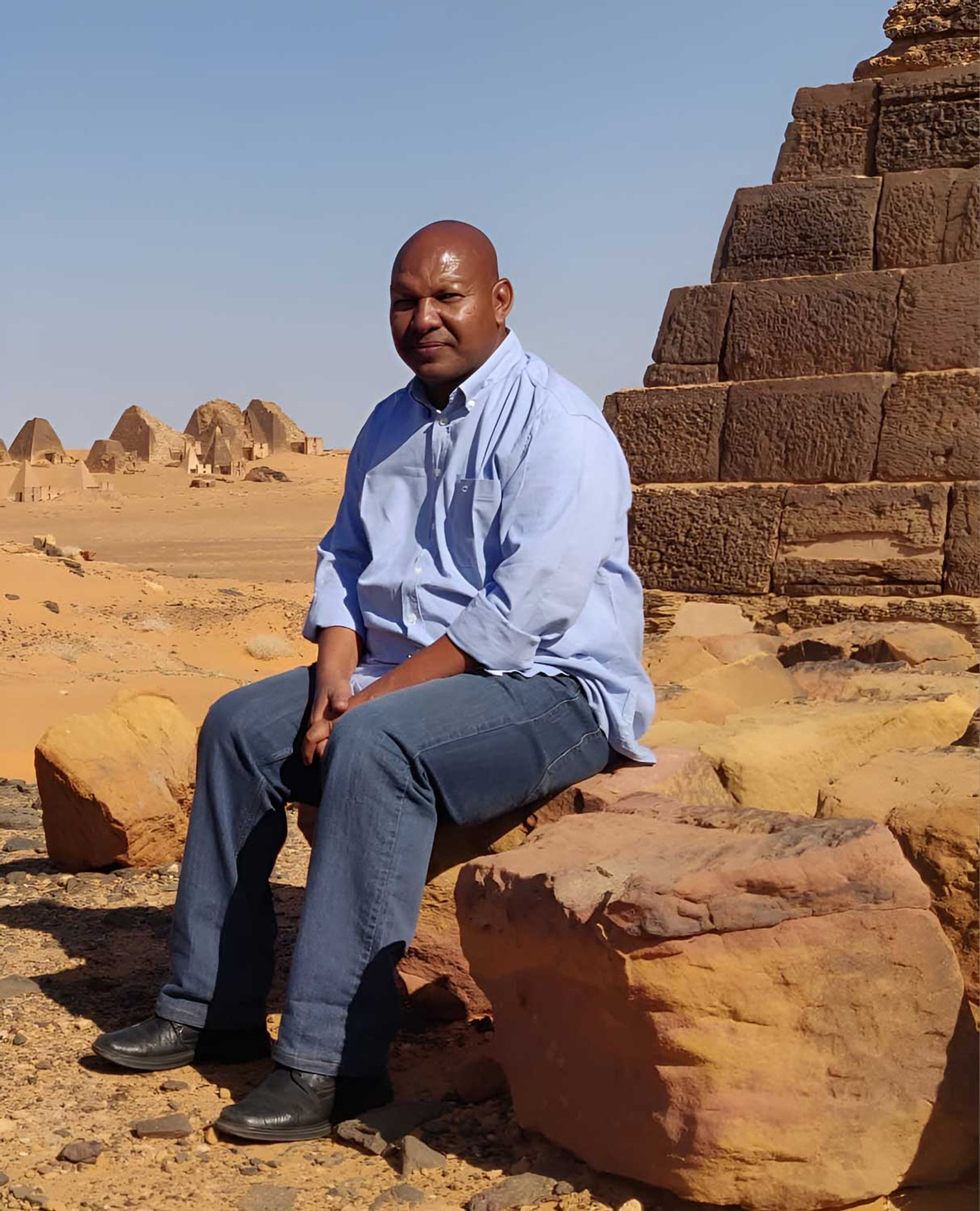
Photo courtesy Mahmoud Suleiman Bashir
Mahmoud Suleiman Bashir
Mahmoud Suleiman Bashir, the director of the River Nile State Antiquities Office and the site manager for the Island of Meroe, Sudan’s second Unesco World Heritage site, has stayed behind to protect the heartland of the ancient kingdom of Kush. He says Meroe’s pyramids, palaces, temples and industrial zones, dating from the eighth century BC to the fourth century AD, now lie vulnerable to both surging visitors and climate change.
Two months into the civil war, RSF soldiers stormed Bashir’s home in Khartoum North, stealing his car, his phone and “everything”. The incident prompted him to relocate to Karima, a five-hour drive from his office.
Now, power cuts and water stoppages have become more frequent as RSF drone attacks target urban infrastructure. Bashir’s family has gone without piped water for two months, and sourcing water from the river Nile is now his main daily task. “I can’t leave my family and go to my office—no one can provide water for them,” he says, explaining that everyone is suffering from the same issue.
He visits the Meroe site whenever he can secure the funds to travel. Because the office is located in a remote area without electricity or running water, he must also find fuel for the generator and upkeep of the well. “It’s very hard to work from home,” he says. “This is one of the biggest challenges I face.”
Like many Sudanese, Bashir now depends on financial support from family living abroad; his brother in Germany pays his rent. “We’ve forgotten all about electricity,” he says. Traditional methods are used for washing and ironing clothes, and solar panels for charging phones.
There is no timeline for returning to his home in Khartoum North. Recent photographs show the building has been thoroughly looted—even the water pipes were stolen.
Despite all the pressures, Bashir refuses to walk away. “I am responsible for the Unesco site. I couldn’t leave,” he says, adding: “We didn’t receive any support to control the visits despite reporting all these threats to Unesco and other organisations involved in protecting archaeological heritage during conflict.”
He says there have been numerous unfulfilled promises of assistance and that applications for funding are mired in red tape. He is deeply concerned for the condition of the site, where sand continues to accumulate as the rainy season nears, with warnings of even worse flooding than previous years—a disastrous combination.
He adds that only the Sudan Archaeological Research Society and the British Museum have provided consistent support for the Island of Meroe. More funding is urgently needed.
“I’ve lost some of our hopes and dreams, but the local community relies on me. I thought this is what I could provide to my country: stay, and do whatever is possible to protect these sites and keep them safe,” Bashir says. He adds that even if he is unable to stop the deterioration, he can at least continue to report it to the world.


